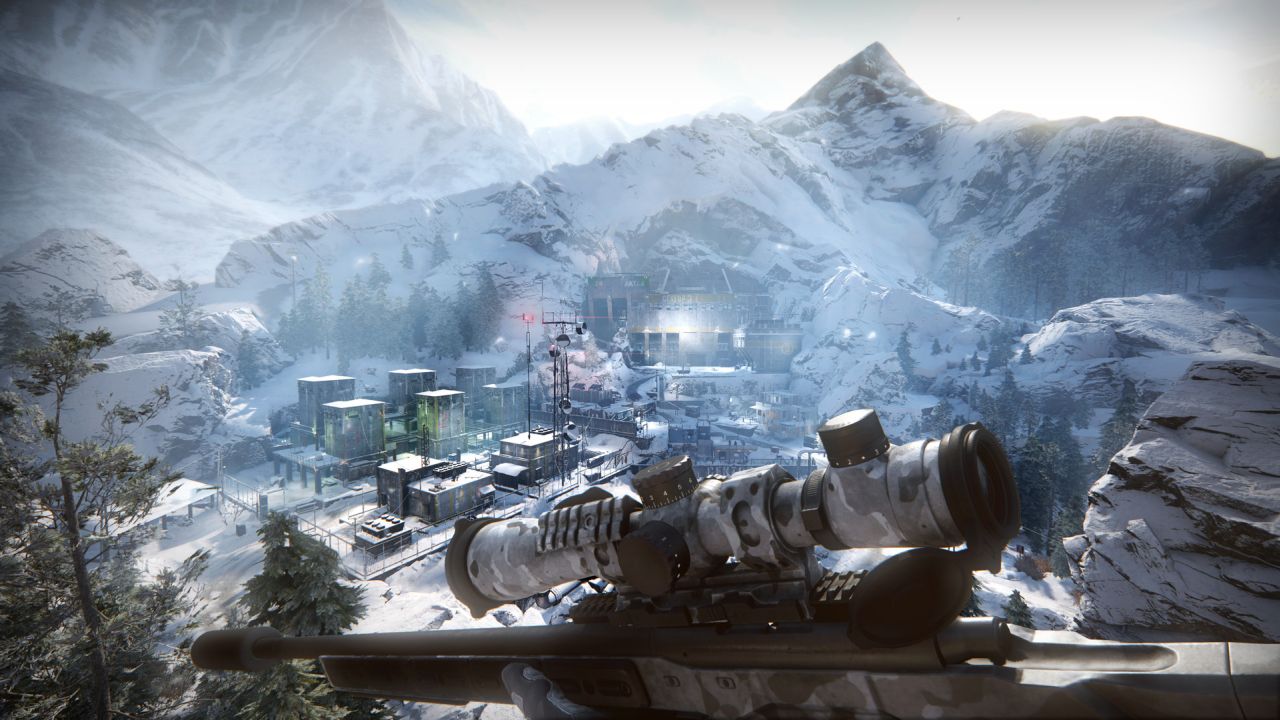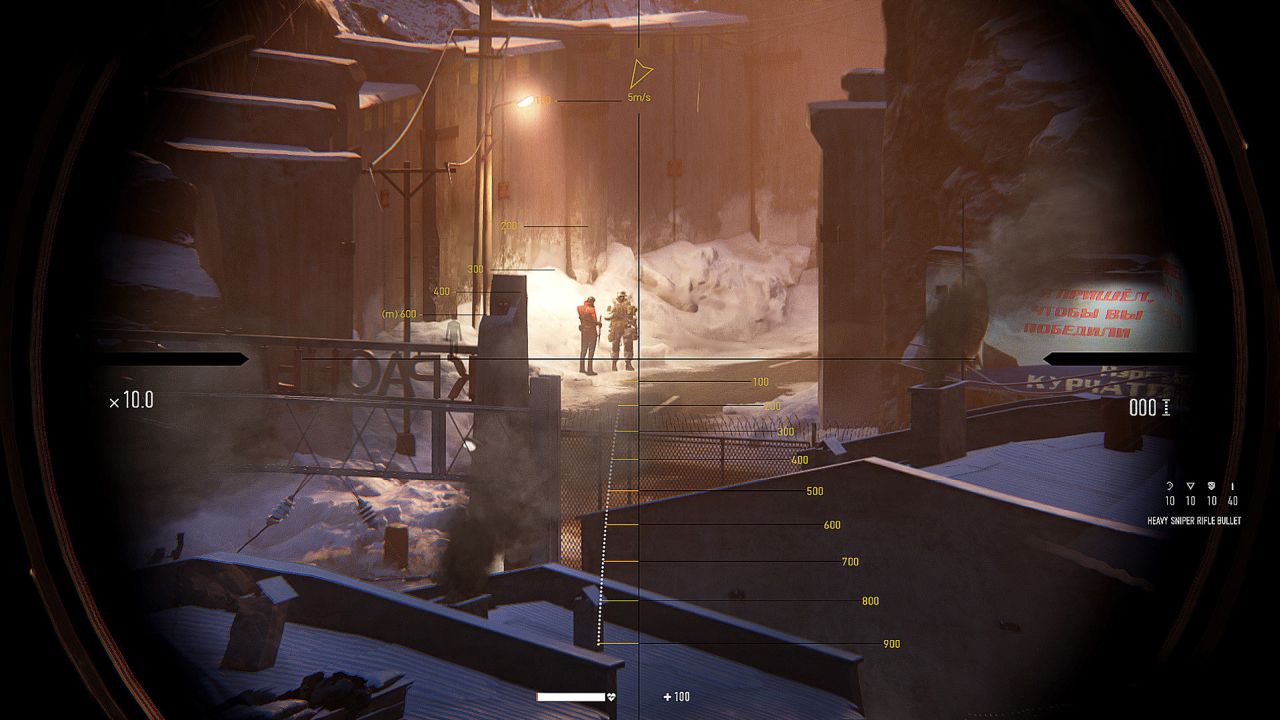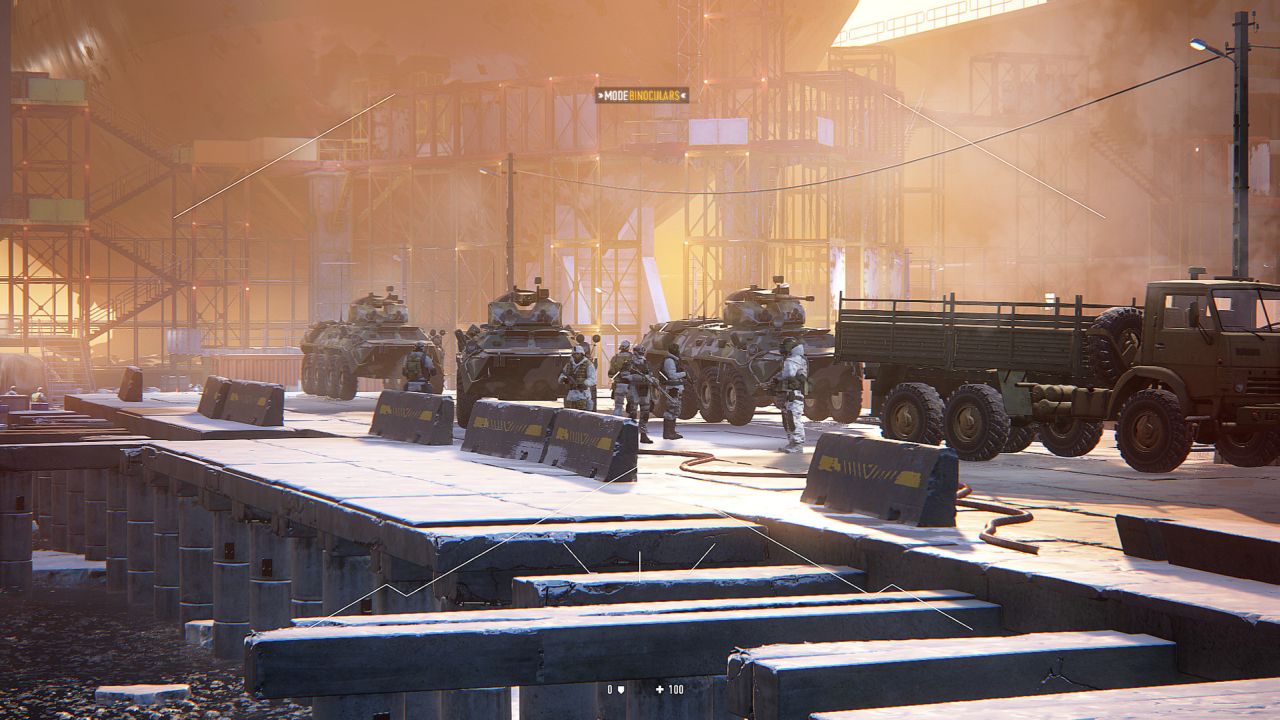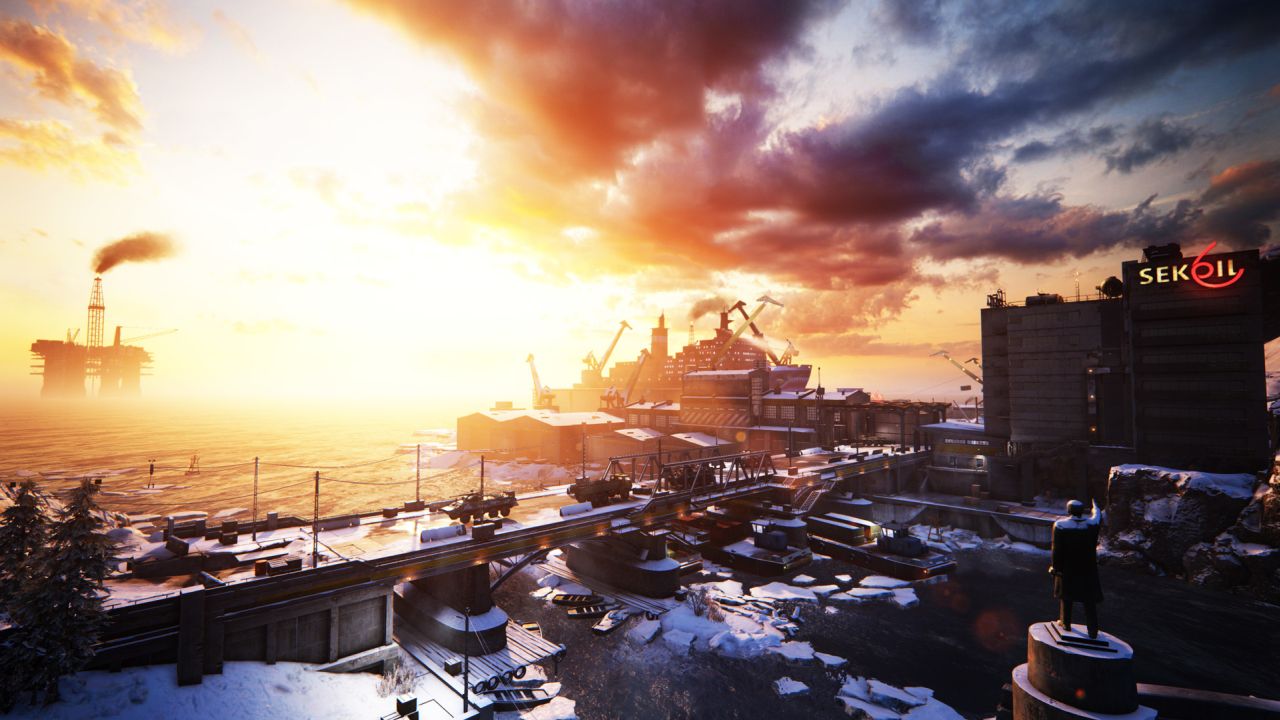Sniper Ghost Warrior Contracts Review
Few endeavors are as challenging as zeroing in on a specific game mechanic and basing the entire experience around it. Sports and racing games have done so, but the vast versatility of both allows them to smoothly expand beyond the playing field – into career management, finances, and other aspects. But when your entire existence focuses on an even more narrow mechanic – in this case, sniping people from far away – how do you continue to innovate for one or two, let alone four games? But that’s exactly what CI Games have attempted to do with their Sniper Ghost Warrior series. It started off as an average, focused sniping game, expanded its mission structure a bit in the sequel, and went full-out open world in the third chapter. No longer simply about pure sniping, it has become more of stealth-action experience, but with questionable results. Borrowing mechanics from other games didn’t work all that well – so for the latest, unnumbered chapter, CI Games have decided to streamline and re-focus the series. And while it’s not a bullseye, they’ve at least hit the target with confidence.

SGW Contracts takes place in the fictional independent republic of Siberia, which through a revolution declared its independence from Russia. But the joy was short lived – while rich in resources, the wealth became concentrated in the hands of an elite few, and they abused their power over the people, all the way to war crimes. A resistance soon formed, but has been unable to gain any ground. It’s under these circumstances that you, a Seeker, are hired by someone named The Handler. You’re told that this is a purely transactional contract, thanks to your elite combat skills, and you’re not really on anyone’s side – but thankfully for the player consciousness, the Handler aligns you with the resistance and sends you out to thin the ranks of the elite. The story is largely forgettable, and similar to something like Hitman, it simply serves as a vehicle to get you a bunch of targets to chase after. We learn of their crimes through pre-mission briefings, but at the end of the day they are just targets, made of flesh and penetrable bone.
In the first key lesson learned from Ghost Warrior 3, Contracts adopts a replay-focused, open-level mission structure. Again, not unlike the new Hitman games, you’re dropped into a large area and are free to tackle objectives the way you see fit. On one hand, this gives each level significant playtime as you scout multiple facilities, complete tasks like stealing intel or taking out secondary targets. It’s addicting and engaging to make your way through each of the five regions, learn their ins and outs, and have the freedom to go where you please. On the other hand, these levels are more tightly and linearly designed, with specific geography that limits your approaches, which some fans might find amiss given the completely open-ended nature of the previous game. Each compound and mission area acts as a mini-level to infiltrate and clear out, which makes it suitable for shorter sniping sessions, as you can resume your progress from the last checkpoint.
Each level contains a main target, secondary targets, as well as bonus objectives and collectibles. You can tackle the content in any order, or skip most of it altogether. The entire map is visible from the start, and you can even fast travel between a few spots right away. This seems a bit odd as it removes the element of exploration or at least earning those fast travel spots; it would’ve made more sense to at least make players explore levels on their first go. The map also shows each objective area, as well as any other targets or collectibles you’ve come across, so you can head towards your desired destination. Navigation could have been better – the radar is tiny and largely useless, and it’s easy to lose your sense of direction, and have to pull up the main map all the time.

The controls are fitting for a sniping game such as this. There are some awkward bits when it comes to platforming, such as climbing ledges or going up and down ladders, but for the most part it’s serviceable. As you find a suitable spot and crouch or lay down to observe the area, you can use your fancy high tech mask to tag enemies. You do need to find and sort of zero-in on the foes for a moment to make the tag, so it’s not super easy to just look around have everything marked. Still – if you choose to sneak up and interrogate an enemy, they will in fact mark every single foe in the vicinity, which makes infiltration trivial. Occasionally, you might run into jammers that will prevent you from marking targets (which can be destroyed by shooting their fuse boxes). With the targets marked – which include regular soldiers, heavy gunners with helmets, security cameras, and flying drones – the sniping can begin.
As mentioned, it’s difficult to innovate when your entire experience is focused around one mechanic, and Contracts is a fairly typical sniping game in this regard. You have to account for the distance and wind, which is straightforward to do thanks to the new scope view that takes up the entirety of the screen. Sliding the distance markers back and forth is simple enough, and on normal difficulty setting the game also features a bullet drop white line that shows exactly where your shot will go. Then it’s just a matter of holding your breath, and squeezing the trigger. The shooting feels typically satisfying, and there is a slow-mo camera shot that occasionally follows the bullet to its target. These assists and the bullet cam are adjustable, which is good because there are moments when you must string two quick shots together – before enemies raise the alarm after watching their friend fall – as the bullet cam cuts away from our aim, disrupting it.
If you happen to be close to your targets, you can loot them for bullets and move the bodies. This is important if you want to maintain stealth – although doing so only affects the immediate area, and moving on to another compound presents a fresh start. Making sure you eliminate enemies in corners, away from patrols – which have a pretty good variety and length – is key. Objectives that don’t require target elimination usually involve just interacting with some PC or intel device, deep in the base. If you want or need to get close, the bases have a few different paths, holes in the fences, crawl spaces, and containers to hide in; you can also throw rocks for distraction and use a silenced pistol for close range. However, most will go unused as by the time you’re in, there should be few enemies left standing. Once you have the intel, you must extract it from one of the select few points on the map – and during this time, fast travel is not available, thus forcing you to sneak back out on foot.

The game works on a checkpoint system, so you can’t save-scum your way out of failed stealth. And there will be times where you will get spotted due to no fault of your own. Stealth games live and die by their AI, and unfortunately Contracts is about average at best – that is, inconsistent. Sometimes you’ll get spotted for making too much noise, other times you will be seen from a mile away – and not by an enemy sniper. On occasion, enemies will literally teleport if their animations don’t finish playing out before they are supposed to be on patrol. If you eliminate a few targets with others around, the base will go into alert, but without a visual confirmation they will simply sit behind cover, occasionally running back and forth, and doing literally nothing else. Once at least one enemy spots you, they will rush and the entire base will instantly know your location. Now would be a good time to swap to your secondary weapon, which is usually an assault rifle, and start throwing grenades if you brought some. You die fast, so it’s not meant to be an action game – but again, the AI is very simple and behaves poorly, getting stuck or not shooting, posing no threat.
The moment to moment gameplay of Contracts is quite solid, but it’s the progression systems that will encourage players to keep going through the campaign. Each of the open-ended levels have main objectives, as mentioned, but there are also challenges and collectibles. Each of these three task types act as tokens/cash, which let you get new gear and abilities and select a unique loadout before each deployment. After doing most of the missions in two first areas, you should have enough currency to become an extremely versatile soldier. You can upgrade your mask to unlock new abilities such as tracking enemy footsteps, scanning them through nearby walls, carry more ammo, get armor, and so on. You can also purchase lots of gadgets such as mines, grenades, a drone to explore or distract, and a remotely controlled automated sniper rifle for sync shots. On top of all that, you of course have the weapons arsenal, letting you purchase new sniper rifles, weapons, and pistols with varying stats – and attachments. Also crucial are the new special bullets, which you can bring in limited amounts. These range from EMP, to explosive, scanners, and sound-emitting. The amount of tools at your disposal is truly staggering, and you can unlock and customize the gameplay experience entirely to your liking.
After the somewhat uneven presentation of SGW3, Contracts opts for a cleaner look. The changes to the scope make it look more modern and high tech, and the Siberian setting allows for a variety of environments, but without going overboard. The game performs well on PC, though there was a bug with the GOG version that left the mouse cursor visible at all times. Animations are sufficient, and it’s more the issues with AI scripting than their movements that give away the game’s lower budget. During the action, the bullet cam shows off the ragdoll physics that mostly look good. However, some of the details are very inconsistent – sometimes enemies lose their helmets, and there is plenty of blood on the floor and the wall, but at other times it’s as if nothing happened. There is a surprising amount of gore – like enemy heads being completely eviscerated – but again there’s no rhyme or reason for when it happens. Speaking of gore, it would have been nice to have a less lethal option – while the game can be completed by only killing the primary targets, there are zero non-lethal weapons, and interrogations always end with bloodshed.

Sniper Ghost Warrior Contracts is a satisfying game within its sub-genre, and one that corrects the course of the franchise. It definitely has some problems – namely with AI, presentation, and general bugs – so it’s not going to evolve or revolutionize its space. Having said that, fans of these types of games will be immensely satisfied thanks to an incredible amount of gameplay variety when it comes to gadgets and abilities, as well as fairly solid level design and a better open world structure. Its lower price point should only help zero-in on the target audience.
